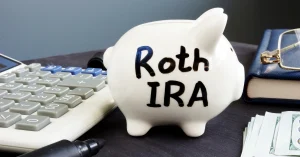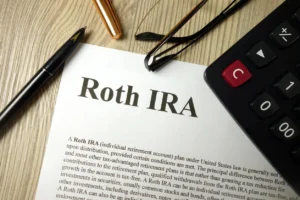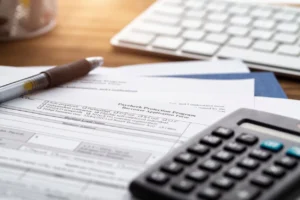Commission-free trading through Robinhood has made investing accessible to millions of people. While buying and selling securities without fees sounds appealing, many investors discover that tax season brings unexpected complexity. Your Robinhood account generates taxable events every time you sell an investment for a gain, and understanding how to properly report this income can save you from penalties and surprise tax bills.
This guide walks you through everything you need to know about Robinhood tax documents, from accessing your Form 1099 to filing your returns correctly. Whether you made money or lost money this year, you have reporting requirements that you need to meet.
Understanding Your Robinhood Tax Forms
Robinhood issues different tax forms depending on your account activity during the year. The platform consolidates multiple forms into a single PDF document, which makes the filing process more straightforward than receiving separate forms from different sources.
| Form Type | What It Reports | Due Date |
|---|---|---|
| Form 1099-B | Proceeds from stock, crypto, and options sales | February 16 |
| Form 1099-DIV | Dividends and distributions from investments | February 16 |
| Form 1099-INT | Interest income earned in your account | February 16 |
| Form 1099-MISC | Referral bonuses and other miscellaneous income | February 16 |
| Form 1099-R | Retirement account distributions | January 31 |
According to the Internal Revenue Service, brokerages must report all securities transactions to both taxpayers and the tax authority. This means Robinhood sends your transaction information directly to the IRS, so any discrepancies between what you report and what Robinhood reported will trigger questions.
Form 1099-B: Your Main Tax Document
Form 1099-B contains the most critical information for most Robinhood users. This form shows your capital gains and losses from selling securities throughout the year. The document aggregates similar transactions to reduce its length, which means multiple sales of the same stock on a single day appear as one entry.
Your 1099-B includes several key data points for each transaction. The form lists the description of the security, the date you acquired it, the date you sold it, your proceeds from the sale, your cost basis, and your gain or loss. If you triggered wash sales during the year, those adjustments appear in a separate column.
When You’ll Receive Your Robinhood 1099
Tax document timing matters because you can’t file your return until you have all your forms. Robinhood follows IRS guidelines for when brokerages must provide tax documents to customers.
For most investment activity, Robinhood makes your Consolidated 1099 available by February 16 each year. This document combines your 1099-B, 1099-DIV, 1099-INT, and 1099-MISC into a single PDF. If you have a Robinhood IRA, your Form 1099-R becomes available by January 31, and your Form 5498 arrives by May 31.
The February 16 date represents the deadline for brokerages to provide initial forms, but this doesn’t mean you should file immediately. Many tax professionals recommend waiting until late February or early March to file if you have investment income, giving time for any corrections to come through.
Do I Need to File? Quick Decision Guide
NO → Continue to next question.
NO → Continue to next question.
NO → Continue to final check.
NO → No Robinhood tax filing required this year.
Still Unsure About Your Filing Requirements?
Robinhood tax situations can be complex. Our CPAs specialize in active trader returns and can review your specific situation in minutes.
Get Expert Tax Review → Free ConsultationHow to Access Your Tax Documents in the Robinhood App
Robinhood delivers tax documents electronically through the app and website. You don’t need to wait for forms to arrive in the mail, and you can access your documents as soon as they’re ready.
Step 1: Log Into Your Account
Open the Robinhood app or visit the website and sign in with your credentials. Make sure you’re using the account where you made your trades during the tax year.
Step 2: Navigate to Your Tax Center
Tap your profile icon in the bottom right corner, then select “Statements & History.” From there, choose “Tax Documents” to access your tax center. On the website, click on your account icon in the upper right and select “Tax Center” from the dropdown menu.
Step 3: Download Your Documents
Your Consolidated 1099 appears as a single PDF file. Download this document to your device for your records. The document includes all applicable forms based on your account activity.
Step 4: Import to Tax Software
Most tax preparation software allows you to import your Robinhood 1099 directly. Look for your master account number and document ID at the top of your Consolidated 1099 – you’ll need these numbers when importing. Select “Robinhood Markets” as your financial institution when prompted by your tax software.
If your tax documents aren’t loading properly in the app, try clearing your cache or using a different browser. The documents require a stable internet connection to display, and sometimes switching from the app to the website (or vice versa) resolves display issues.
Filing Taxes on Robinhood Stock and Crypto Transactions
The IRS treats different types of investment income differently. Understanding these distinctions helps you report your Robinhood activity correctly and avoid penalties for incorrect filing.Do I Need to File? Quick Decision Guide
NO → Continue to next question.
NO → Continue to next question.
NO → You may not receive a 1099, but still check below.
NO → No Robinhood tax filing required this year.
Still Unsure About Your Filing Requirements?
Robinhood tax situations can be complex. Our CPAs specialize in active trader returns and can review your specific situation in minutes.
Get Expert Tax Review → Free ConsultationShort-Term vs. Long-Term Capital Gains
The length of time you hold an investment before selling determines your tax rate. Investments sold within one year of purchase generate short-term capital gains, which the IRS taxes at your ordinary income rate. This means your gains get taxed at the same rate as your wages or salary.
Investments held for more than one year before selling produce long-term capital gains. These receive preferential tax treatment, with rates of 0%, 15%, or 20% depending on your total taxable income. For 2024, single filers with taxable income up to $44,625 pay 0% on long-term gains. The 15% rate applies to income between $44,625 and $492,300, and the 20% rate kicks in above that threshold.
Real-World Tax Scenarios: What You'll Actually Owe
| Scenario | Details | Tax Treatment | Estimated Tax (25% bracket) |
|---|---|---|---|
| Quick Flip Profit | Bought $1,000 of stock, sold for $1,500 after 3 months | $500 short-term gain taxed as ordinary income | $125 tax owed |
| Patient Investor | Bought $1,000 of stock, sold for $1,500 after 14 months | $500 long-term gain taxed at preferential rate | $75 tax owed (15% rate) |
| Loss Without Wash Sale | Sold stock at $200 loss, waited 31 days before repurchasing | Full $200 loss deductible against gains or income | $50 tax saved |
| Wash Sale Mistake | Sold stock at $200 loss, repurchased identical stock 20 days later | Loss disallowed, added to new cost basis | $0 current year benefit |
| Dividend Income | Received $300 in qualified dividends from stocks held 12+ months | Qualified dividends taxed at long-term capital gains rate | $45 tax owed (15% rate) |
| Day Trading Loss | Lost $5,000 day trading, no gains to offset | Deduct $3,000 this year, carry $2,000 forward | $750 tax saved + future |
| Crypto Quick Trade | Bought Bitcoin at $30,000, sold at $35,000 after 2 months | $5,000 short-term gain taxed as ordinary income | $1,250 tax owed |
| Referral Bonus | Received $200 worth of free stock through referrals | Reported as miscellaneous income on 1099-MISC | $50 tax owed |
💡 Confused About Your Specific Tax Situation?
These examples are simplified. Your actual tax liability depends on your total income, filing status, state taxes, and dozens of other factors. Silver Tax Group's Robinhood tax specialists can calculate your exact tax impact and find legal deductions you're missing.
Calculate My Exact Tax Bill → Free AnalysisReporting on Schedule D and Form 8949
You report capital gains and losses on Schedule D of your Form 1040. This schedule requires you to categorize transactions as short-term or long-term and calculate your net gain or loss for each category.
Form 8949 provides the detailed transaction information that supports your Schedule D totals. Each sale you made during the year gets its own line on Form 8949, showing your proceeds, cost basis, and resulting gain or loss. Your tax software typically generates this form automatically when you import your 1099-B.
When completing Form 8949, you’ll check different boxes depending on whether Robinhood reported your cost basis to the IRS. Most Robinhood transactions fall into categories where cost basis was reported, which simplifies your filing. However, some transactions (particularly certain crypto sales) may require you to calculate and report your own cost basis.
Cryptocurrency Tax Treatment
The IRS treats cryptocurrency as property rather than currency for tax purposes. This means the same capital gains rules that apply to stocks also apply to Bitcoin, Ethereum, and other digital assets you trade on Robinhood.
Every crypto sale generates a taxable event, even if you immediately reinvest the proceeds in another cryptocurrency. Swapping one coin for another counts as selling the first coin and buying the second, which means you need to report the gain or loss on the first coin.
According to the Internal Revenue Service, failing to report crypto transactions can result in penalties and interest charges. The agency has increased enforcement of cryptocurrency tax compliance in recent years, making accurate reporting more important than ever.
Wash Sale Rules and How They Affect Your Deductions
The wash sale rule prevents you from claiming tax losses when you quickly repurchase the same or substantially identical securities. This rule exists to stop investors from gaming the system by selling at a loss for tax benefits while maintaining their investment position.
A wash sale occurs when you sell a security at a loss and purchase substantially identical securities within 30 days before or after the sale. The 61-day window (30 days before plus the day of sale plus 30 days after) means you need to wait more than a month before repurchasing if you want to claim the loss.
| Scenario | Result |
|---|---|
| Sell Stock A at a loss, buy Stock A within 30 days | Wash sale – loss disallowed |
| Sell Stock A at a loss, buy Stock B (different company) | No wash sale – loss allowed |
| Sell Stock A at a loss, wait 31 days, buy Stock A | No wash sale – loss allowed |
| Sell Stock A at a loss, buy Stock A in IRA within 30 days | Wash sale – loss disallowed |
When a wash sale occurs, you don’t permanently lose the tax benefit of your loss. Instead, the disallowed loss gets added to the cost basis of the replacement shares you purchased. This adjustment means you’ll recognize the loss when you eventually sell those replacement shares, assuming you don’t trigger another wash sale.
Box 1G on your Form 1099-B shows your total wash sale adjustments for the year. This number represents losses that were disallowed due to wash sales. You need to adjust your cost basis on replacement shares accordingly when filing your return.
Robinhood Tax Reporting
- Consolidated 1099 (all forms in one PDF)
- Crypto + securities combined
- Aggregated transactions (reduces form length)
- Limited tax lot selection control
- Section 1256 contracts require manual TurboTax entry
Traditional Brokers
- Granular tax lot selection
- Automatic tax-loss harvesting tools
- Direct import to all tax software
- Multiple separate 1099 forms
- Crypto reported separately (if offered)
What Makes Robinhood Different
- Document ID Required: 11-digit ID needed for software import
- Master Account Number: 9-digit number at top of form
- Aggregation Method: Same-day sales combined
- "Various" Date: When multiple lots are aggregated
🎯 Robinhood Tax Filing Made Simple
Whether you have 10 trades or 10,000, our Robinhood tax specialists handle the complexities so you don't have to. We import your 1099, handle wash sales, optimize your deductions, and file everything correctly.
Call Now (855) 907-0243Tax-Loss Harvesting Strategies for Robinhood Investors
Tax-loss harvesting involves strategically selling investments at a loss to offset capital gains or ordinary income. This technique can reduce your tax bill while allowing you to maintain a similar investment position.
The strategy works because the tax code allows you to use capital losses to offset capital gains dollar-for-dollar. If you have more losses than gains, you can deduct up to $3,000 of net losses against ordinary income each year. Any remaining losses carry forward to future years.
Implementing Tax-Loss Harvesting Without Triggering Wash Sales
You can harvest losses while staying invested by swapping similar (but not identical) securities. For example, if you want to sell an S&P 500 index fund at a loss, you could purchase a total market index fund as a replacement. The two funds provide similar market exposure but aren’t substantially identical for wash sale purposes.
Here’s a practical approach to tax-loss harvesting in your Robinhood account. First, review your positions for unrealized losses. Second, identify candidates for harvesting based on your overall tax situation. Third, sell positions you want to harvest. Fourth, wait 31 days before repurchasing the same securities, or immediately purchase similar alternatives.
Remember that tax-loss harvesting should serve your overall investment strategy, not drive it. Don’t sell positions solely for tax benefits if doing so conflicts with your long-term financial goals.
What Happens If You Don’t Report Robinhood Income
Failing to report investment income on your tax return carries serious consequences. The IRS receives copies of your Form 1099 directly from Robinhood, which means the agency knows about your investment activity whether you report it or not. When you don’t report income that appears on a 1099, the IRS computer systems flag the discrepancy. The agency typically sends a CP2000 notice several months after you file, proposing additional tax, penalties, and interest based on the unreported income. The proposed assessment assumes all your proceeds are taxable gains if you don’t provide cost basis information. For example, if you sold $10,000 worth of stock during the year, the IRS will assess tax on the full $10,000 even if you only made a $1,000 profit. You then need to provide documentation proving your actual cost basis to correct the assessment.Correcting Past Mistakes
If you realize you failed to report Robinhood income from a prior year, you can file an amended return using Form 1040-X. Voluntary correction typically results in better outcomes than waiting for the IRS to discover the error. The amended return process requires you to complete Form 1040-X showing the changes to your income, deductions, and tax liability. Attach any supporting documents, including corrected Schedule D and Form 8949 if needed. Pay any additional tax due when you file the amendment to minimize interest charges. You have three years from the original filing deadline to file an amended return claiming a refund. However, if you owe additional tax, filing sooner rather than later saves you money on interest and potentially reduces penalties.🚩 Audit Red Flags Checklist: Avoid These Mistakes
These patterns trigger IRS computer systems to flag your return for review. Check each item to ensure compliance:
Your 1099 forms go to both you AND the IRS. Mismatches trigger automatic notices. Even $10 matters.
If you report higher cost basis than Robinhood reported to the IRS, expect questions. Document any corrections.
Pattern day traders with hundreds of wash sales raise scrutiny. Keep detailed records of all replacement positions.
Reporting exactly $5,000 in losses looks suspicious. Use exact figures from your 1099, including cents.
Reporting only summary totals without supporting Form 8949 details triggers verification requests.
The IRS now asks "Did you receive, sell, or exchange digital assets?" directly on Form 1040. Lying is perjury.
If you made 300+ trades but reported as a casual investor, the IRS may reclassify you and assess self-employment tax.
Claiming $50,000 in prior-year losses? Have the original tax returns and 8949 forms ready to prove it.
If you transferred crypto to offshore exchanges, Schedule B requires disclosure. Penalties start at $10,000.
⚠️ Spotted Multiple Red Flags? Don't Risk an Audit.
IRS audits of Robinhood traders increased 340% in 2024. One mistake can cost you thousands in penalties, interest, and professional fees to resolve. Our CPAs proactively identify and fix red flags before you file.
Get Audit-Proof Tax Filing → Book CPA ReviewWorking with a Tax Professional for Investment Income
Investment taxation involves complex rules that change frequently. Working with a qualified tax professional helps ensure you report your Robinhood income correctly and take advantage of all available tax-saving strategies.
Consider professional help if you made numerous trades during the year, triggered wash sales, trade options or cryptocurrency, have investment accounts at multiple brokerages, or received a notice from the IRS about investment income. These situations add complexity that general tax software may not handle properly.
A tax professional can help you understand how your investment activity affects your overall tax situation. They can identify opportunities for tax-loss harvesting, explain wash sale impacts, determine trader tax status eligibility, plan estimated tax payments, and represent you if the IRS questions your return.
Confused about your investment taxes or dealing with IRS questions? Silver Tax Group specializes in helping investors navigate complex tax situations. Our team understands the intricacies of Robinhood taxation and can guide you through filing requirements, audit defense, and tax planning strategies.
Schedule a Consultation Today




